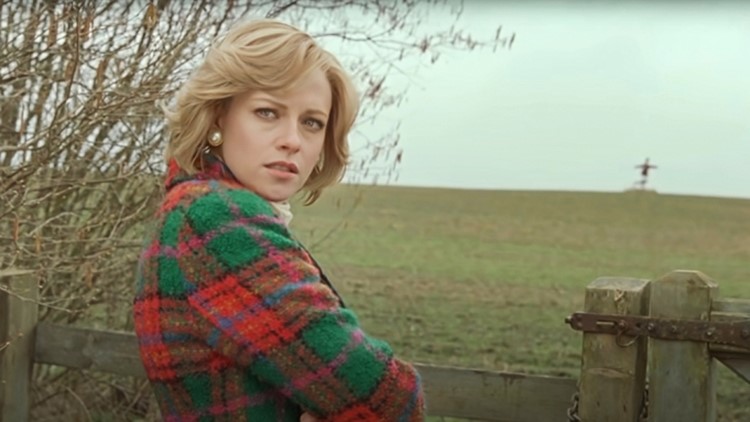ST. LOUIS — The late Diana Spencer may have married Charles, but she despised the life that came with the man.
While few would call it a grudge against higher living, Diana, played superbly by Kristen Stewart, simply hated the Royal Family aspect of the marriage. What she genuinely loved were her two sons, and that's the secret weapon in Pablo Larrain's "Spencer," which documents her decision (and timing) to break it off with Charles. It's the attachment to her kids that kept her body-and fracturing mind-in one piece during one of the most traumatic periods of her life.
In a "these are real people and this sorta happened but we improvised how it basically went" aka semi-imagined of real people and events scenario, Larrain's film puts the viewer right up front, close, and personal with Charles and his historical baggage--as Diana navigates an escape out of British Royalty Alcatraz.
The cinematography is outstanding, weaving us in and around the Royal Grounds, which comes off more haunted than luxurious in this hyper-stylized setting. As spectators to the end, we are one with the camera and Stewart, who is acting her heart out as a woman trying to hold herself together with emotional duct tape. That tape would be in the form of Sally Hawkins' Maggie, a maid/dresser who acted as Diana's sole confidant.
As security specialists like Major Gregory (a wonderful Timothy Spall, all narrowed scowl) and her own demeaning husband (Jack Farthing, with a mix of sinister and contempt) warding over her, the two women seek out solace in bedrooms, shores, and any other place where whispers don't immediately go to die.
Jonny Greenwood composes another iconic and unique to his skillset score that heightens that Hitchcockian aesthetic that lays over the entire running time. Along with "Power of the Dog" and "Licorice Pizza," Greenwood hits the trifecta with a completely different sound discovery in "Spencer." A score master who could receive a lifetime achievement award at just 50 years old.
Larrain's film only gets close to the viewer's heart when Diana is with her kids, and knowing those goofy-yet-authentic interactions between her and the two boys was mostly unscripted only adds to the caliber of Stewart's performance. She carries the detached and often-chilly film to higher ground, in terms of connecting with the audience and pulling you into this complex showdown the Princess had (or may have had) with the Royal Family. With a script stuffed with real people and an imagined setting, all bets are off.
While one could say copying a real-life person makes for an easier performance, stepping into the still-luminous and revered shoes of Princess Diana Spencer was no small feat for any highly-talented actress, but it's a career-defining moment for Stewart. More than merely mimicking a voice or a walk, you can see it in her face and every mannerism.
In that house on that particular weekend, Diana felt she was trapped, locked up in a place with too many rules and an overload of "fancy." While a great dress or chance to raise awareness for one of her foundations was always present in her mind, many didn't know about the mental illness Spencer battled with. Instead of focusing on the glamour, Larrain and Stewart keep their rifle focused on the internal trauma pulling this celebrated woman apart.
Colder to the touch than most films of its kind, I praise the filmmakers and cast for truly digging into the raw misery, and ultimate freedom, of "Spencer."



